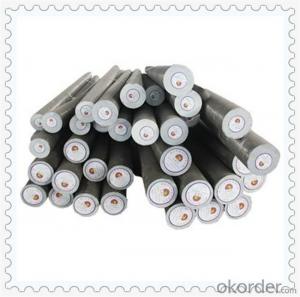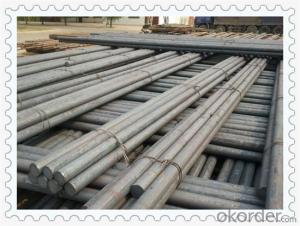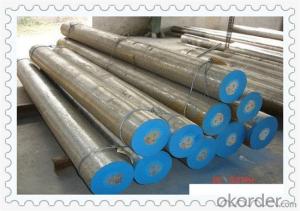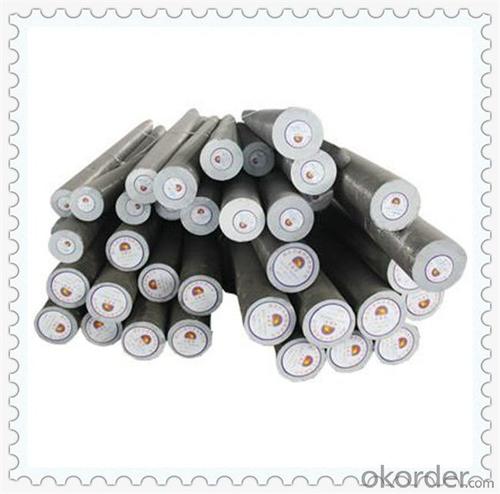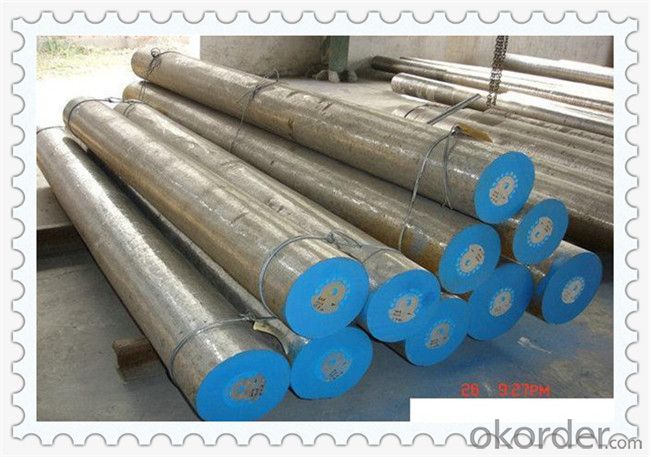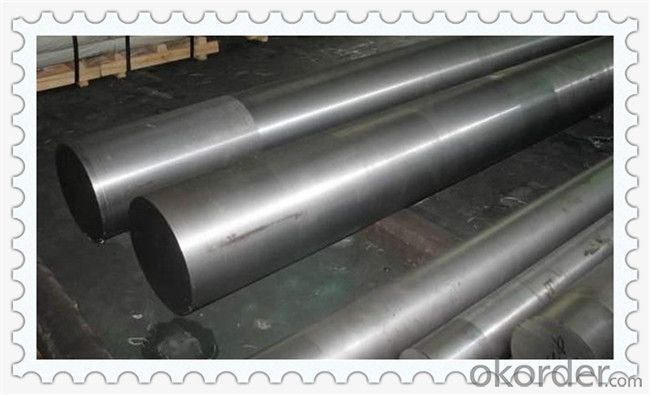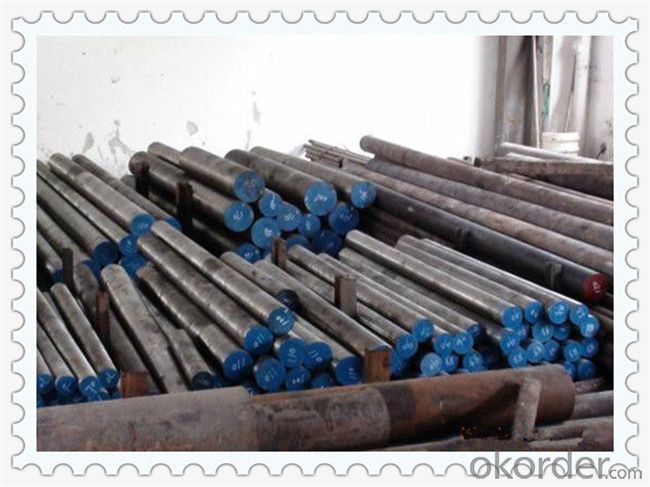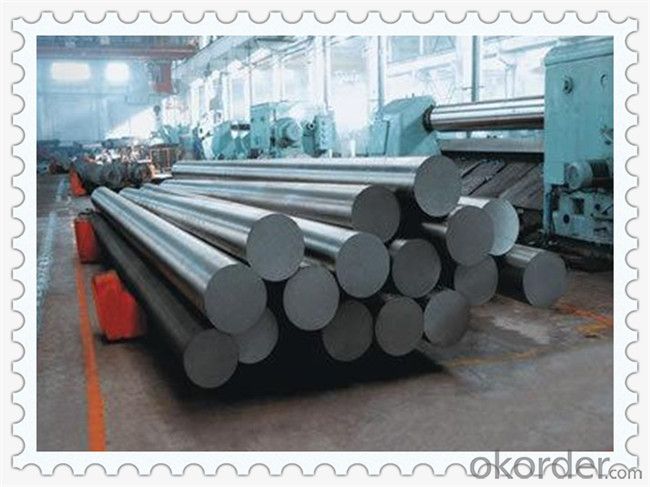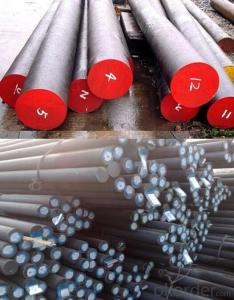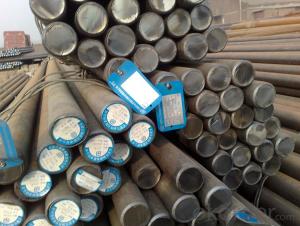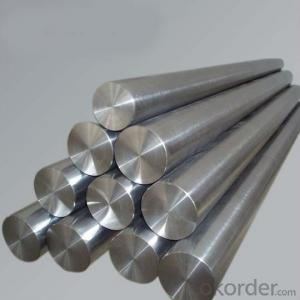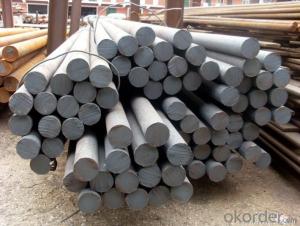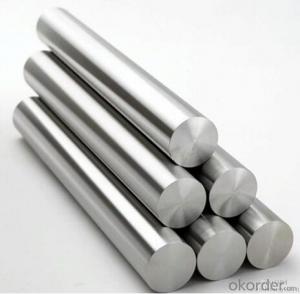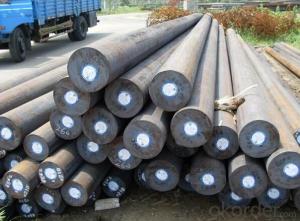Alloy Steel AISI 4340 Materials 1.6582
- Loading Port:
- China main port
- Payment Terms:
- TT OR LC
- Min Order Qty:
- 50 m.t.
- Supply Capability:
- 10000 m.t./month
OKorder Service Pledge
OKorder Financial Service
You Might Also Like
Alloy Steel AISI 4340 Materials 1.6582
Products Details
Similar or Equivalent Grades
GB | ASTM | JIS | ISO |
40CrNiMoA | 4340 | SNCM439 | 36CrNiMo4 |
Chemical composition
Standard |
Grade |
C |
Cr |
Ni |
Mo |
Si |
Mn | P | S | Cu |
≤ | ||||||||||
GB | 5CrNiMo | 0.37-0.44 | 0.60-0.90 | 1.25-1.35 | 0.15-0.25 | 0.17-0.37 | 0.50-0.80 | 0.025 | 0.025 | 0.30 |
JIS | SNCM439 | 0.36-0.43 | 0.60-1.00 | 1.60-2.00 | 0.15-0.30 | 0.15-0.35 | 0.60-0.90 | 0.030 | 0.020 | 0.30 |
ASTM | 4340 | 0.38-0.43 | 0.70-0.90 | 1.65-2.00 | 0.20-0.30 | 0.15-0.35 | 0.65-0.85 | 0.025 | 0.025 | — |
ISO | 38CrNiMo4 | 0.32-0.40 | 0.90-1.20 | 0.90-1.20 | 0.15-0.30 | 0.10-0.40 | 0.50-0.80 | 0.035 | 0.035 | — |
Mechanical Property
Tensile strength | Yield strength | Elongation rate | Contractibility rate | Impact Energy | Hardness(HBS100/3000) |
≥980MPa | ≥835MPa | ≥12% | ≥55% | ≥78J | ≤269 |
Characteristics
1) High hardability.
2) High strength and toughness.
3) Poor cold deformation plasticity and weldability.
4) Poor corrosion resistance.
Application
Bent axle of engine, cross beam, undercarriage, pressure vessel, torsion shaft, transmission shaft, frictionclutch shaft, etc.
Products Show
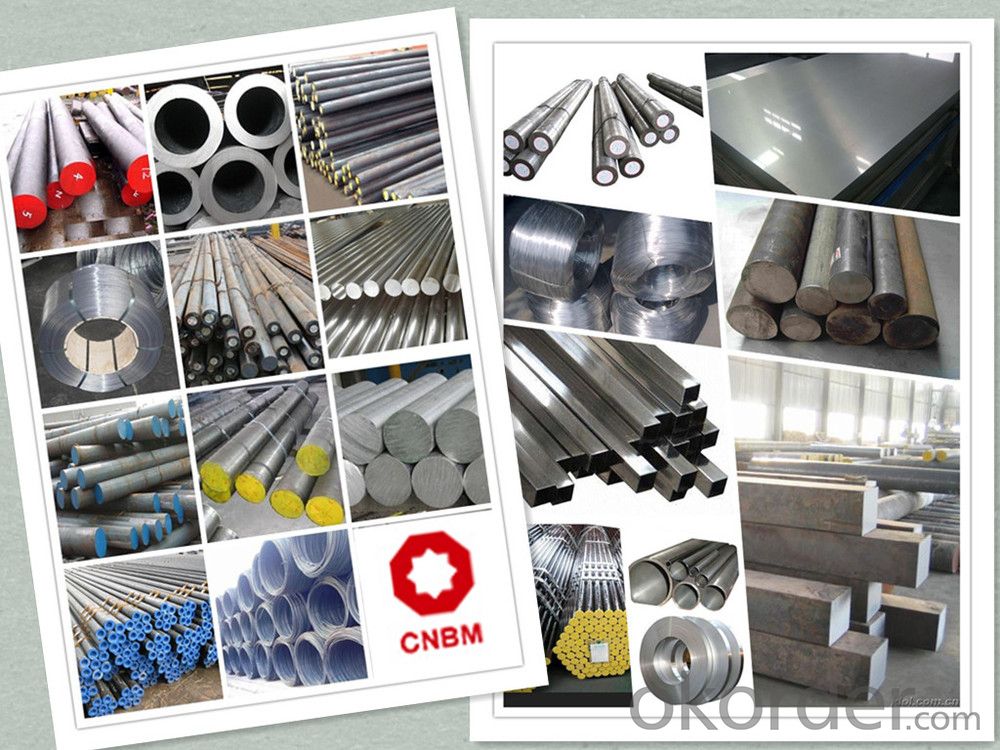
Product Overviews
| Product Name | Typical Grades | Diameter(mm) | Standard adopted |
| Carbon Steel | 20 (1020/S20C/C22) | Ø16-Ø300 |
GB/SAE/JIS/DIN
|
| 40 (1040/S40C/C40) | |||
| 45 (1045/S45C/C45) | |||
| Bearing Steel | GCr9 (51100/SUJ1) | Ø12-Ø250 | |
| GCr15 (52100/SUJ2/100Gr6) | |||
| GCr9SiMn (A485-Gr.1/SUJ3) | |||
Cr-Mo Steel | 20Cr (5120/SCr420H/20Cr4) | Ø12-Ø250 | |
| 40Cr (5140/SCr440/41Cr4) | |||
| 42CrMo(4140/SCM440/42CrMo4) | |||
| Gear Steel | 20CrNiMo | Ø16-Ø600 | |
| 20CrMn(5115/SMnC420/20MnCr5) | |||
| 20CrNiMo(8620/SNCM220/20CrMiMo2) |
Application
| Carbon Steel | Mold bottom, Plastic mold, Construction machinery parts Automobile parts, Security grills, Screens, Construction |
| Bearing Steel | Aerospace, Navigation, Nuclear energy, Chemical industry Electronic information, Petrochemical, Instrument and meter Transportation |
| Cr-Mo Steel | Mechanism & Fasteners gear, Stressed components for vehicles Engines and machines, Parts of larger cross-section |
| Gear Steel | All kinds of gears, Statically and dynamically stressed component for vehicles Engines and machine, Larger cross-section parts, Crankshafts |
Work Shop
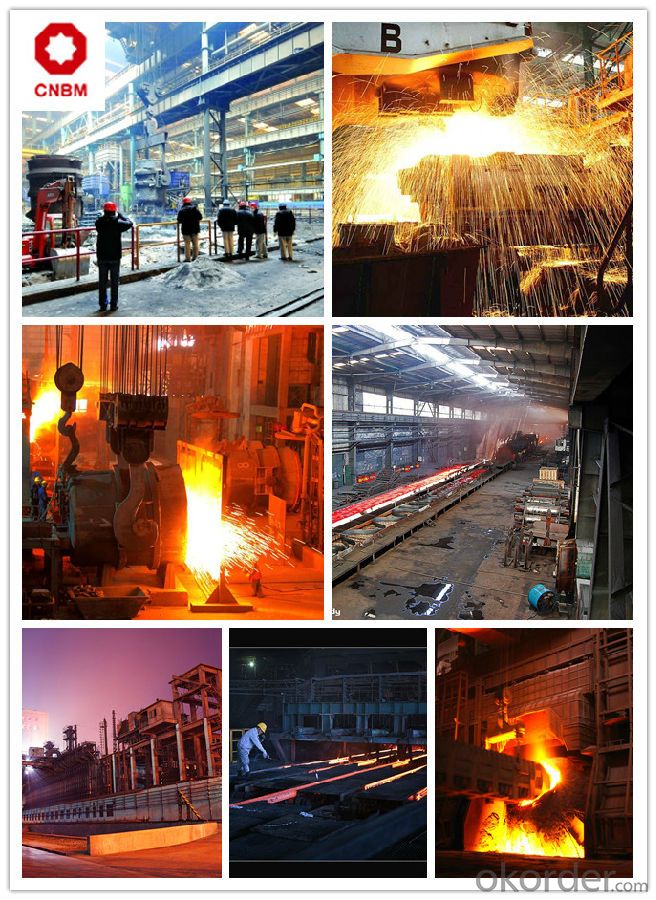
Company Information
CNBM International Corporation is the most important trading platform of CNBM group.
Whith its advantages, CNBM International are mainly concentrate on Cement, Glass, Iron and Steel, Ceramics industries and devotes herself for supplying high qulity series of refractories as well as technical consultancies and logistics solutions.

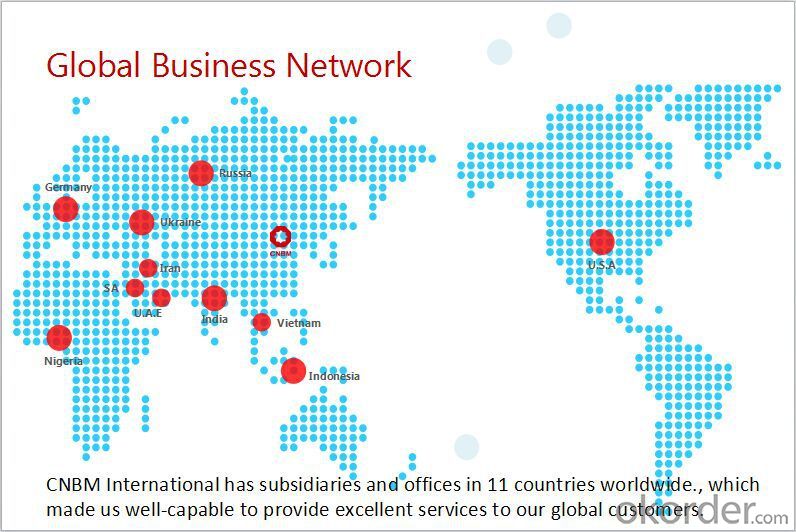
FAQ
1, Your advantages?
professional products inquiry, products knowledge train (for agents), smooth goods delivery, excellent customer solution proposale
2, Test & Certificate?
SGS test is available, customer inspection before shipping is welcome, third party inspection is no problem
3, Factory or Trading Company?
CNBM is a trading company but we have so many protocol factories and CNBM works as a trading department of these factories. Also CNBM is the holding company of many factories.
4, Payment Terms?
30% TT as deposit and 70% before delivery.
Irrevocable L/C at sight.
5, Trading Terms?
EXW, FOB, CIF, FFR, CNF
6, After-sale Service?
CNBM provides the services and support you need for every step of our cooperation. We're the business partner you can trust.
For any problem, please kindly contact us at any your convenient time.
We'll reply you in our first priority within 24 hours.
Packaging & Delivery
1, Packaging: seaworthy package or as required
2, Delivery: 35-45 days or based on quantity
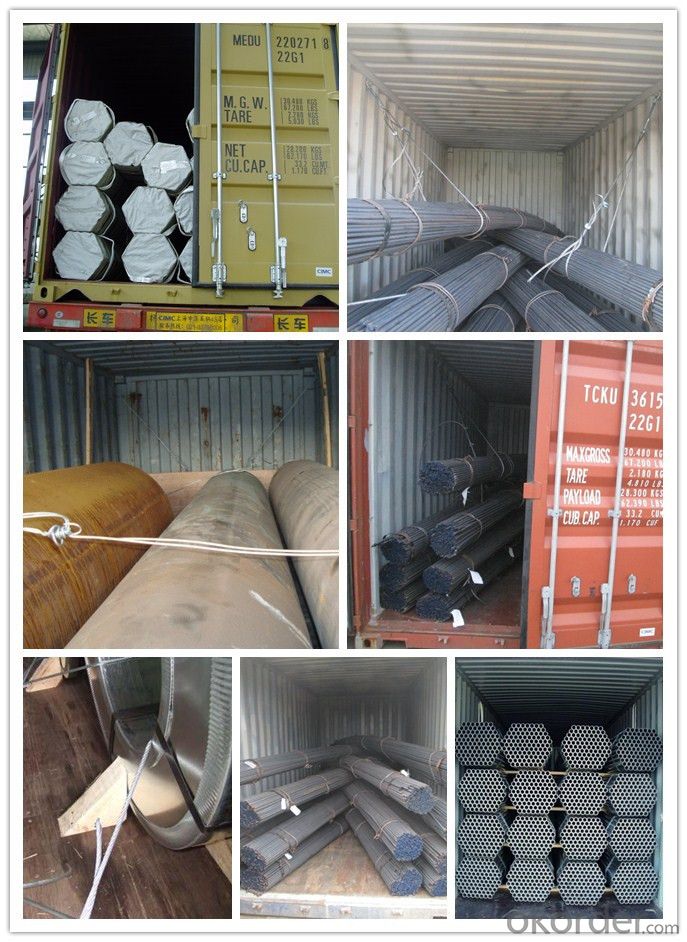
- Q: Are steel round bars susceptible to cracking?
- Yes, steel round bars can be susceptible to cracking under certain conditions. The specific factors that can contribute to cracking in steel round bars include high stress levels, improper heat treatment, and the presence of impurities or defects in the material. Additionally, sudden changes in temperature or excessive loading can also increase the likelihood of cracking. It is important to note that steel round bars can vary in their susceptibility to cracking depending on the specific grade and composition of the steel. Some types of steel, such as low carbon or mild steel, are generally less prone to cracking compared to higher carbon or alloy steels. To mitigate the risk of cracking, proper handling and storage of steel round bars is crucial. This includes avoiding dropping or mishandling the bars, as well as storing them in a dry and controlled environment to prevent corrosion. Furthermore, proper heat treatment processes, such as annealing or tempering, can help improve the structural integrity of steel round bars and reduce the risk of cracking. Additionally, regular inspections and testing for any potential defects or impurities can help identify and address any issues before they lead to cracking. Overall, while steel round bars can be susceptible to cracking, taking appropriate precautions and utilizing proper manufacturing and handling techniques can minimize the risk and ensure the integrity of the bars.
- Q: Are steel round bars resistant to fire?
- Yes, steel round bars are highly resistant to fire. Steel is a non-combustible material and has a high melting point, making it suitable for use in high-temperature environments.
- Q: How do steel round bars perform in outdoor or marine environments?
- Steel round bars generally perform well in outdoor or marine environments due to their inherent strength and corrosion resistance. The composition of steel, particularly stainless steel, enables it to withstand exposure to moisture, saltwater, and other harsh elements without significant degradation or rusting. This makes steel round bars a dependable choice for construction, infrastructure, and marine applications where durability and longevity are crucial.
- Q: What are the different surface defects that can be found in steel round bars?
- There are several surface defects that can be found in steel round bars. These defects can vary in severity and can have an impact on the overall quality and performance of the steel. Some common surface defects include: 1. Scale: Scale refers to the thin, flaky layer of iron oxide that forms on the surface of steel during the manufacturing process. It can appear as a rough, scaly texture and may cause issues with adhesion or coating application. 2. Pitting: Pitting is the formation of small holes or depressions on the surface of the steel. It can be caused by corrosion, contamination, or uneven heating during the manufacturing process. Pitting can weaken the structural integrity of the steel and increase the likelihood of failure. 3. Scratches: Scratches are superficial marks or cuts on the surface of the steel. They can occur during handling, transportation, or processing. While small scratches may not significantly affect the performance of the steel, deep or extensive scratches can create stress concentrations and reduce the strength of the material. 4. Cracks: Cracks are linear fractures that can occur on the surface of the steel. They can be caused by excessive cooling, improper heat treatment, or mechanical stress. Cracks can propagate and lead to catastrophic failure if not detected and addressed. 5. Decarburization: Decarburization is the loss of carbon content on the surface of the steel due to exposure to high temperatures or improper heat treatment. It can result in a softer and weaker surface layer, reducing the material's strength and hardness. 6. Laminations: Laminations are layers or separations within the steel round bar that can occur due to improper rolling or manufacturing processes. These can weaken the material and reduce its load-bearing capacity. 7. Inclusions: Inclusions are non-metallic impurities or foreign substances that are trapped within the steel during the manufacturing process. They can include oxides, sulfides, or other debris. Inclusions can act as stress concentrators and reduce the material's resistance to cracking and deformation. Detecting and addressing these surface defects is crucial to ensure the quality and reliability of steel round bars. Various inspection techniques such as visual examination, ultrasonic testing, magnetic particle testing, or dye penetrant testing can be employed to identify and assess the severity of these defects.
- Q: Can steel round bars be used in the construction of buildings?
- Indeed, the utilization of steel round bars is viable in the erection of edifices. In the realm of construction, steel round bars are widely employed as reinforcement within concrete frameworks, specifically in columns, beams, and slabs. Their inclusion imparts heightened robustness and stability to the structure, augmenting its resilience against various loads and forces. Notably, the circular configuration of these bars facilitates effortless bending and molding, thereby rendering them versatile and adaptable for diverse construction applications. What's more, steel round bars are renowned for their exceptional tensile strength, durability, and resistance to corrosion, rendering them an optimal choice for enduring and dependable building construction projects.
- Q: Can steel round bars be used in the manufacturing of hydraulic components?
- Yes, steel round bars can be used in the manufacturing of hydraulic components. Steel is a common material used in the construction of hydraulic components due to its strength, durability, and resistance to corrosion. Steel round bars can be shaped and machined to create various hydraulic components such as pistons, cylinders, valves, and fittings. The use of steel round bars ensures that these components can withstand high pressures and continue to function effectively in various hydraulic systems.
- Q: Can steel round bars be used for making heat exchangers?
- Steel round bars are suitable for constructing heat exchangers. Steel is widely used in heat exchangers because it has great thermal conductivity, high strength, and corrosion resistance. Steel round bars can be easily machined and molded to match the specific design needs of a heat exchanger. Moreover, steel is easily accessible and cost-efficient, making it a popular option for manufacturing heat exchangers in different industries. However, it is crucial to take into account the particular application and operating conditions of the heat exchanger to ensure that the selected steel grade is compatible and capable of enduring the necessary temperature and pressure.
- Q: 12 of the diameter of the round steel can be M12 out of the thread is not
- No problem。 M12 coarse thread of the pitch is 1.75, the outer circle to be processed to 11.8mm, the thread of the most beautiful shape. If the outer circle is too large, the tip of the tooth is too small and very easy to deform.
- Q: Are steel round bars suitable for the manufacturing of shafts?
- Indeed, steel round bars prove to be fitting for the production of shafts. Renowned for their robustness, longevity, and capacity to endure immense loads and rapid rotations, steel round bars excel in applications involving shafts. The circular form of the bar fosters even distribution of stress, thereby diminishing the likelihood of failure or distortion. Moreover, steel round bars can be easily manipulated and subjected to heat treatment in order to attain desired mechanical properties, such as hardness and toughness, thereby reinforcing their aptness for shaft production. All in all, steel round bars encompass the essential attributes demanded by shafts, thereby rendering them a trustworthy and widely employed material in diverse industries.
- Q: What is the maximum length of a steel round bar that can be produced?
- The maximum length of a steel round bar that can be produced depends on various factors such as the manufacturing process, equipment capabilities, and logistical constraints. However, in general, steel round bars can be produced in lengths ranging from a few feet to several hundred feet.
Send your message to us
Alloy Steel AISI 4340 Materials 1.6582
- Loading Port:
- China main port
- Payment Terms:
- TT OR LC
- Min Order Qty:
- 50 m.t.
- Supply Capability:
- 10000 m.t./month
OKorder Service Pledge
OKorder Financial Service
Similar products
Hot products
Hot Searches
Related keywords
